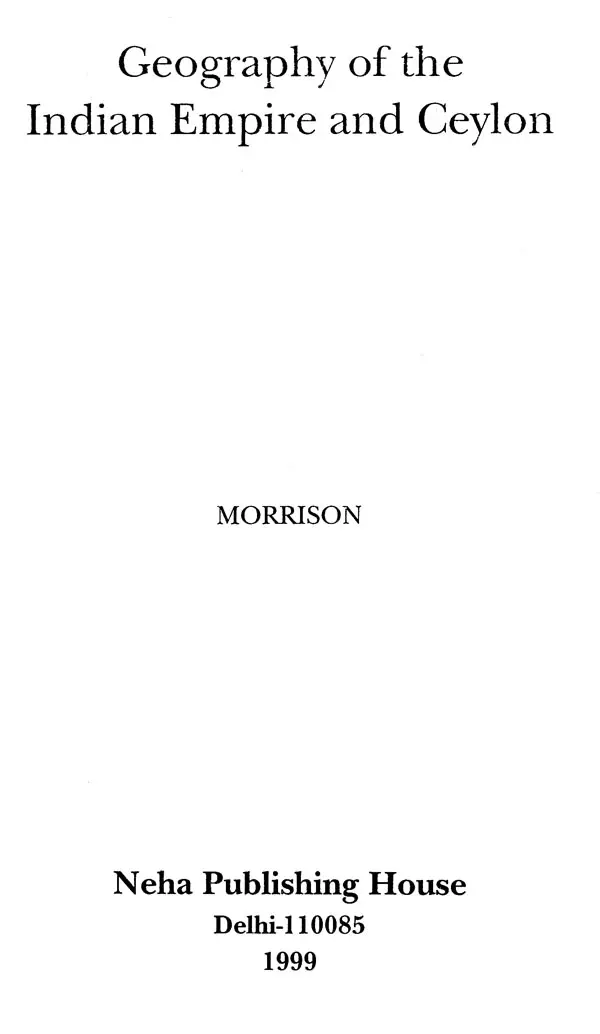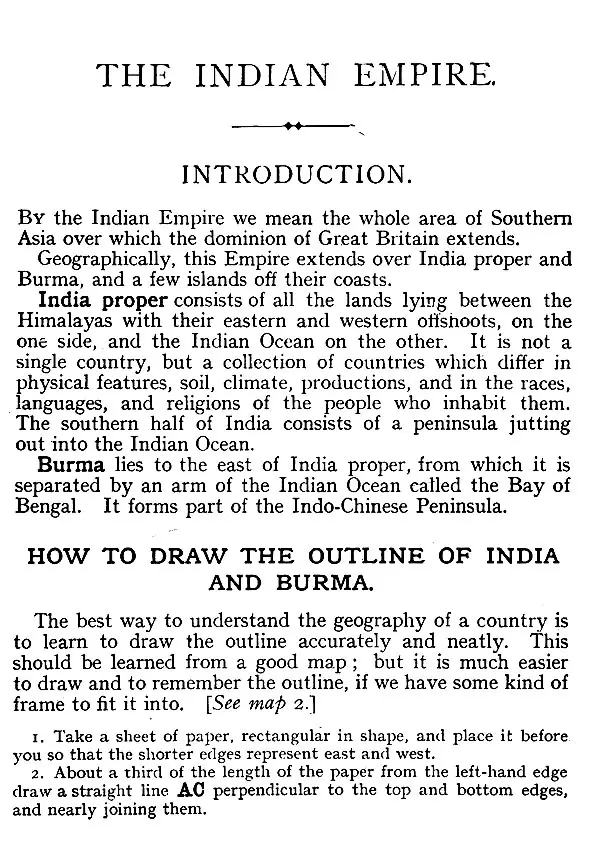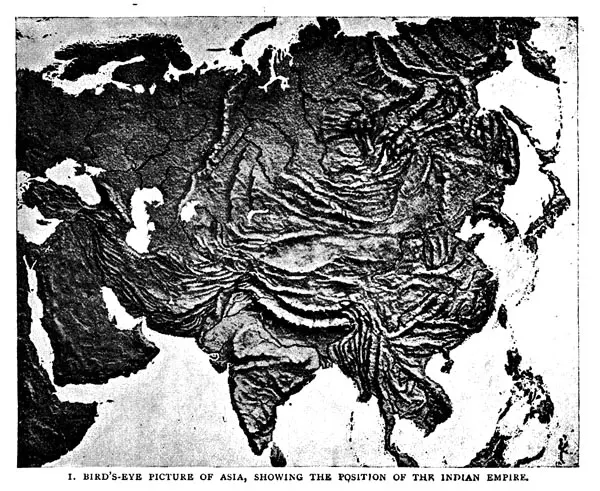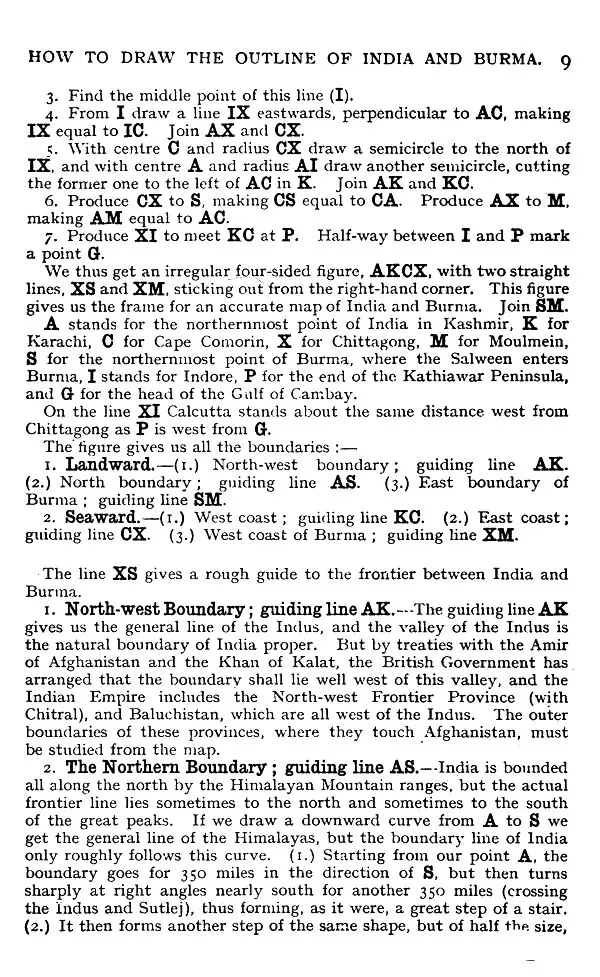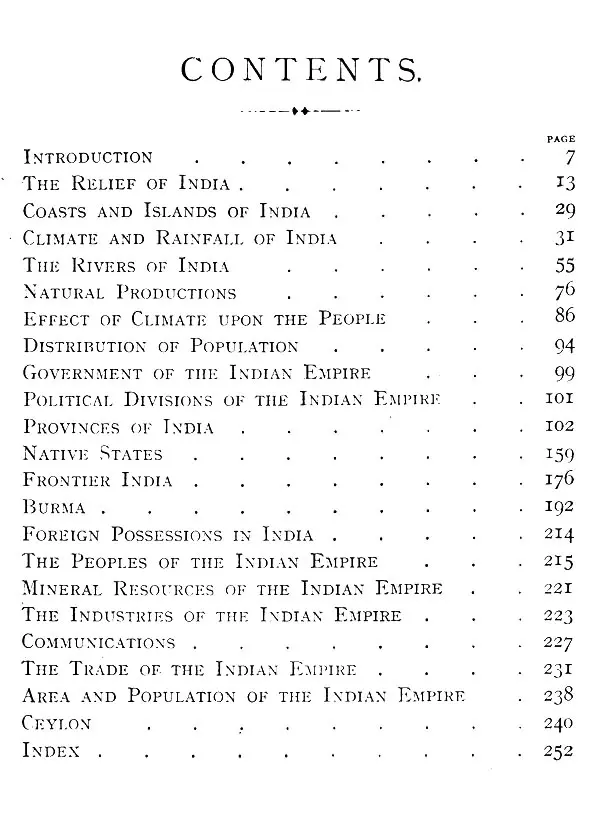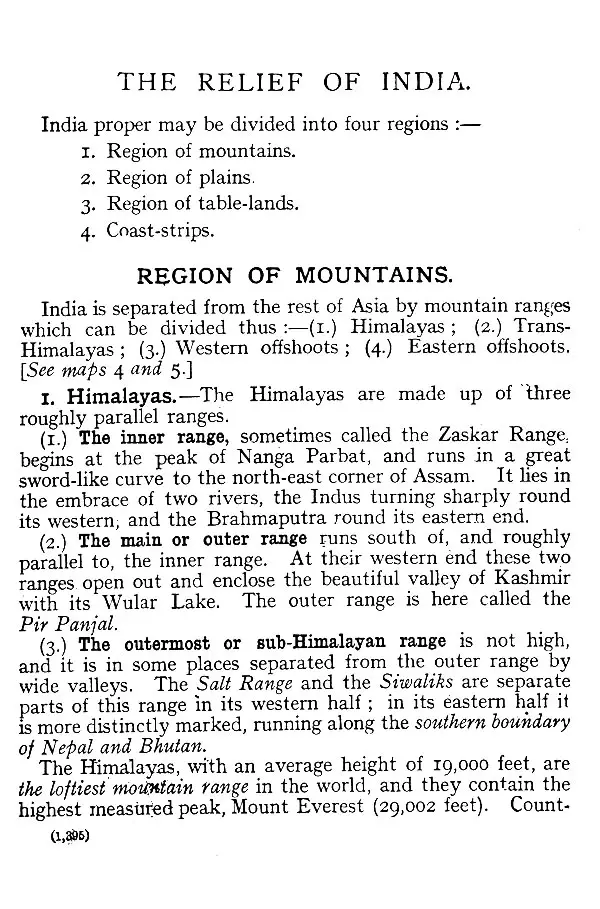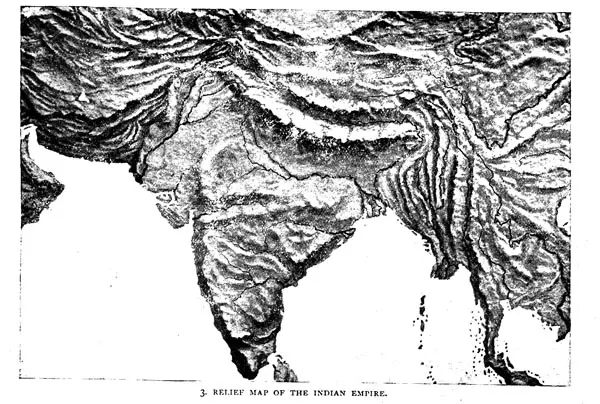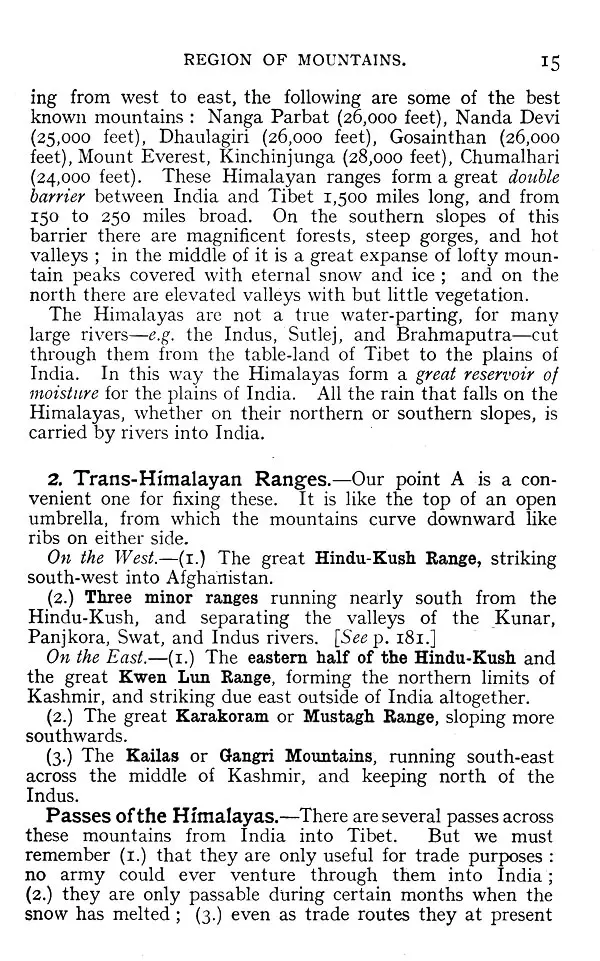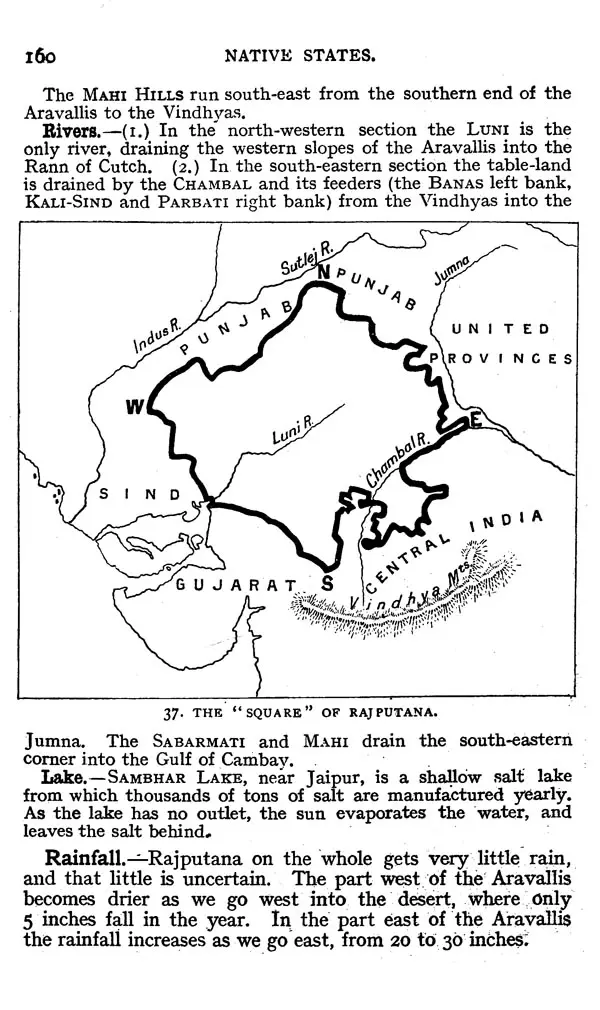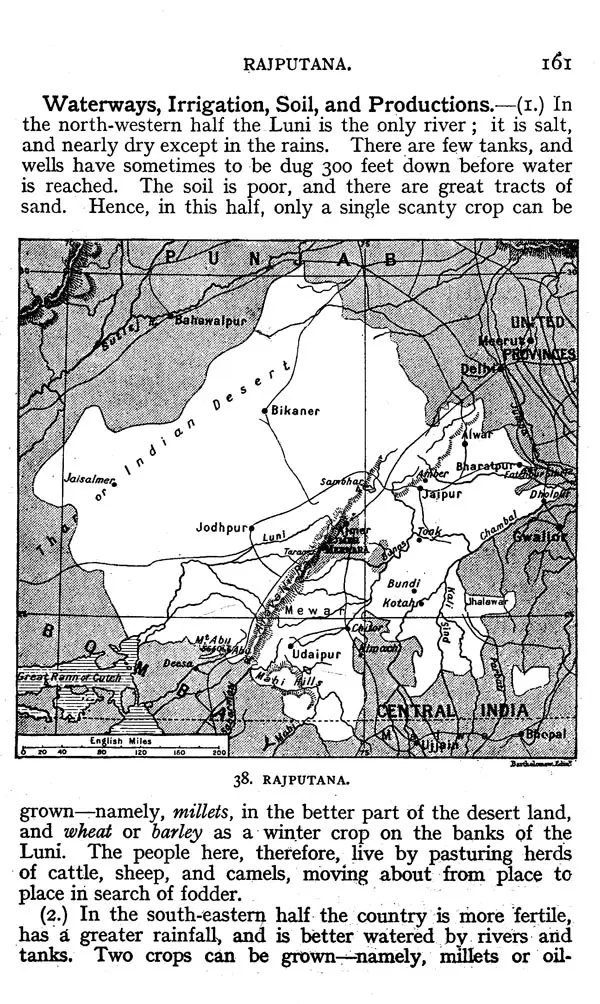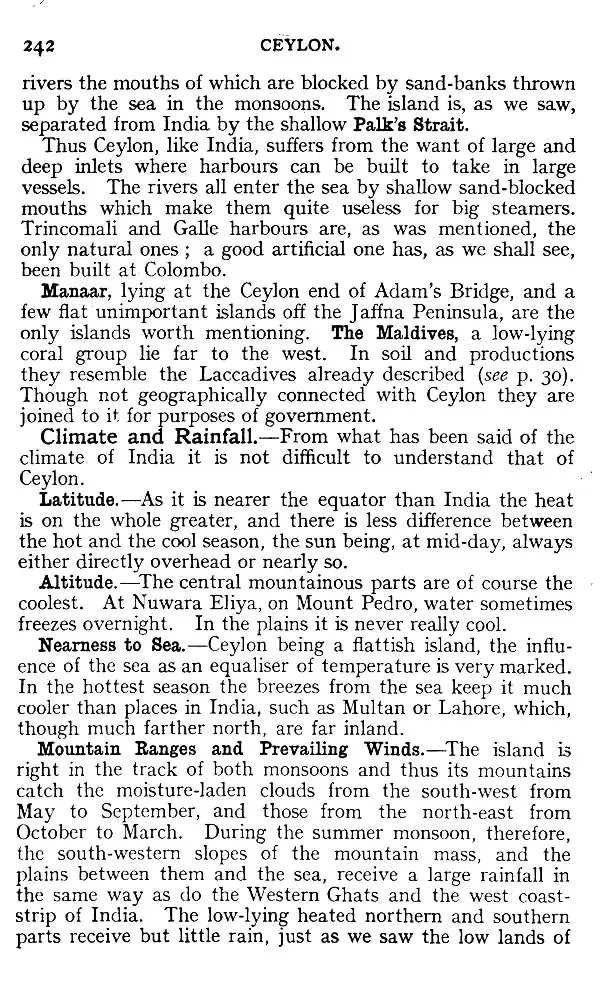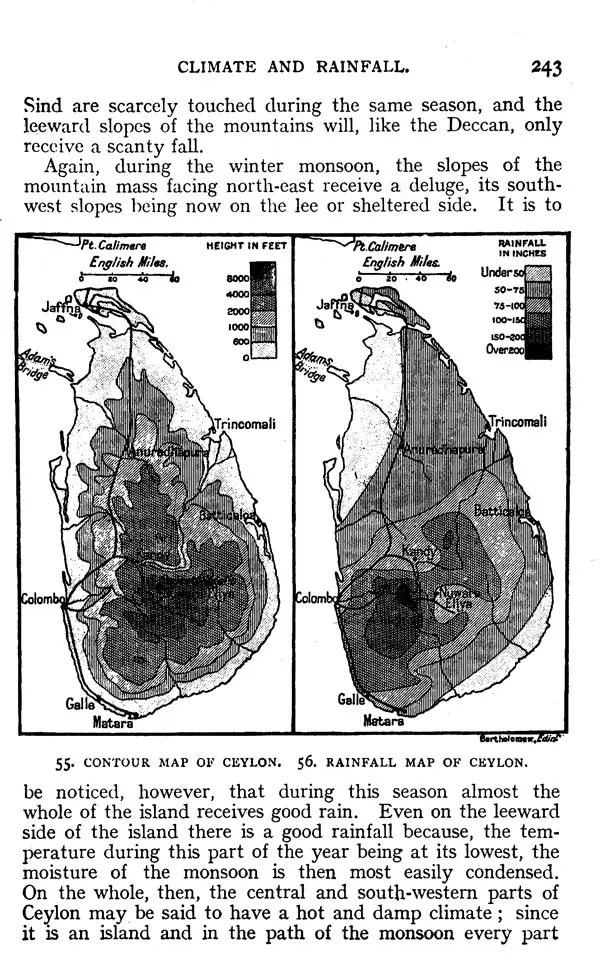
Geography of Indian Empire & Ceylon
Book Specification
| Item Code: | UAF764 |
| Author: | Cameron Morrison |
| Publisher: | Neha Publishing House, Delhi |
| Language: | English |
| Edition: | 1999 |
| Pages: | 270 (Throughout B/W Maps) |
| Cover: | HARDCOVER |
| Other Details | 9.00 X 6.00 inch |
| Weight | 530 gm |
Book Description
Indian Empire, geographically, extends over India proper and Burma, and a few islands off their coasts. India proper itself consists of all the lands lying between Himalayas and the Indian Ocean. The study of the geography of Indian Empire is educationally of peculiar value.
The present book is divided into twenty-two chapters and each chapter has been devised to present a reasonable balanced account of the theme. Starting from Introduction the study goes to describe the relief of India. It further deals with the coasts and islands, climate and rainfall, rivers, natural productions, effects of climate, population, government, political division, Indian provinces, native states and frontier India. Burma, which is the northern part of the Indo-Chinese peninsula also forms a chapter of the present book.
Later, the book covers foreign possessions, peoples, mineral resources, industries, communications, trade, etc. The book closes with the Ceylon which lies to the South-east of Indian peninsula. The book is well illustrated with 57 maps depicting various aspects of geography.
The author has made an attempt to put and keep clearly before the young scholars the causes of things which may prove, to their mind, the first doorway to the great world of science. As for teachers, a study of geography of India is not merely a means of conveying useful and interesting information, it gives them a golden opportunity to present to Indian youths a living picture of the land they dwell in and to impart a knowledge of the conditions under which its teeming population live. In this way, this book will serve as a ready guide to scholars for study of the geography in India, Burma and Ceylon.
THE reception accorded to the first edition of this text-book has been very encouraging. Within a year of its publication re-issues have been repeatedly called for and it has found its way into every quarter of the Indian educational world. I am sensible that this result has been due as much to the lack of an adequate text-book following modem methods, dealing specifically with the subject of Indian Geography, as to any merits of the book itself. At the .me time, the testimony of many teachers from all parts of India who have welcomed this attempt to divert the study of Indian Geography on to more educative and interesting lines is eloquent of a general desire to see the subject given its proper place in the mental training of Indian youth. The appreciative criticisms, too, which have reached me from many readers, un-connected with the work of education, into whose hands the book has come, are evidence that it has in some measure succeeded in presenting the ordinary facts of India's geo-graphical economy in an interesting way.
It is hoped that, in the present edition, the obvious defects of its predecessor have been remedied. The maps are, I trust, what they are meant to be - a feature of the book. They are almost all new and have been specially prepared to illustrate the text. They have been drawn by Messrs. Bartholomew & Co.'s staff of skilled draughtsmen, just at the time when they had in hand, under the authority of the Secretary of State, the maps and atlas for the new edition of the Imperial Gazetteer of India. Their accuracy and authenticity are thus guaranteed.
As to the text, while the letter press has been entirely ret and reprinted, and purged of a few inaccuracies, an endeavour h. been made to preserve the book as far as possible in its original shape so as to avoid temporary inconvenience in schools where the old edition may still be used as a lesson-book. The distinction of large and small type as indicative of important and of secondary matter km been more carefully preserved. At the same time, a. few new paragraphs have been introduced where it was thought that the general geographical conditions of India had not been sufficiently emphasised, or where fuller illustration of their effects seemed called for. A chapter has been added on Ceylon. Though not a part of the Indian Empire, the island is, geographically and economically, so closely connected with the mainland that its inclusion in the book seems desirable.
At the present day, complaint is loudly (and not unjustly) made that the education imparted in Indian schools and colleges is of a too literary and academic flavour; that it is widely divorced from the facts and environment of daily life. To such a charge the intelligent teacher of Geography can with confidence plead "Not Guilty." The measure of success he wins is precisely in proportion as he invests the subject with the vividness of present concrete reality. In his hands a study of the Geography of India is not merely a means of conveying useful and interesting information; it gives him a- golden opportunity to present to Indian youths a living picture of the land they dwell in and to impart knowledge of the conditions under which its teeming populations live. To illumine and enforce his teaching there is scarcely any department of knowledge or source of information from which he may not borrow; no issue of a daily- paper but contains some illustration of the facts and laws he deals with. Among the present day needs of India there is none greater than that of a widely diffused knowledge of the elemental facts of the country itself. To such knowledge a study of its geographical features and climate is an essential preliminary. For an educated youth in India there can be no better intellectual possession than a grasp of the various natural conditions on which depends the welfare of its different provinces.
A study of these things may, it is hoped, lay the foundations of a balanced and informed judgment without which public spirit and genuine patriotism (the absence of which in India is so generally deplored) can have no real basis. Certainly, to love a land one must first know it. To set about discussing how Governments rule India without first learning and appreciating how Providence has dealt with her can only lead to futility and confusion.
